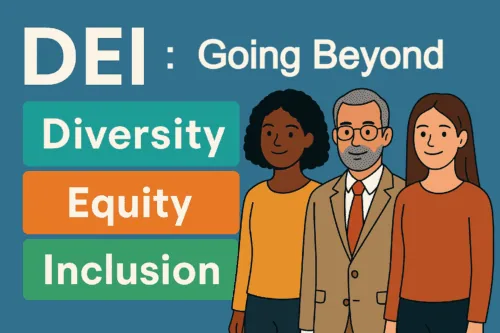Welcome to your essential guide to identifying and understanding unfair hiring practices. Knowing the signs of unfair hiring can protect you and enhance your career prospects, whether you’re entering the job market or seeking new opportunities.
In this overview, we’ll explore what constitutes unfair hiring practices, provide real-world examples, and discuss the legal frameworks designed to combat these practices. This guide is intended to educate job seekers on their rights and equip employers with the knowledge to cultivate fair and inclusive hiring processes.
Navigating the job market can be daunting, but with the proper knowledge, you can spot red flags and advocate for fair treatment. Let’s dive in and ensure your job search is both successful and just.
Understanding Unfair Hiring Practices
Unfair hiring practices refer to discriminatory or biased approaches during recruitment and selection, which can unjustly favor or disadvantage specific candidates. These practices not only affect individual job seekers but can also harm the integrity and diversity of a workplace. This section will explain what constitutes unfair hiring and why it’s crucial for employers to recognize and rectify these practices.
What are Unfair Hiring Practices?
Unfair hiring practices can emerge in various forms, often reflecting biases related to age, gender, race, religion, or disability. These are not just unethical but illegal under federal and state laws. Some common manifestations include:
- Discrimination: Disregarding candidates based on personal attributes unrelated to job performance.
- Retaliation: Penalizing candidates for previously asserting their rights against employers.
- Nepotism: Giving undue preference to relatives or friends regardless of their qualifications.
Why It Matters
Addressing unfair hiring practices is crucial to complying with legal standards and fostering a diverse and inclusive workplace. Diversity has been shown to enhance creativity, problem-solving, and company reputation. Therefore, recognizing these malpractices supports legal compliance and boosts organizational success.
Learn more about workplace diversity benefits in our detailed article Experts Weigh in on Workplace Diversity. Understanding these nuances is the first step toward creating fairer recruitment strategies that align with legal requirements and modern ethical standards. For a deeper look into anti-discrimination laws and enforcement, visit the U.S. Equal Employment Opportunity Commission (EEOC) website.
Common Examples of Unfair Hiring Practices
Having defined what constitutes unfair hiring practices, it’s essential to recognize how these can manifest in real-world scenarios. Knowing these examples can empower candidates to identify and challenge such practices and assist employers in reviewing their hiring policies to ensure fairness.
Direct and Indirect Discrimination
Discrimination might be overt or subtle, but both forms are harmful:
- Direct Discrimination: When a job advertisement specifies an unnecessary age or gender requirement not pertinent to job duties.
- Indirect Discrimination: When a job criterion, such as ‘must lift 50 pounds’, unnecessarily excludes many female candidates if the job rarely requires heavy lifting.
Biased Language in Job Descriptions
Language in job descriptions can deter certain groups from applying. Terms like “young and energetic” might imply a preference for younger applicants, which is a discriminatory practice against older candidates.
Accessibility Issues
Failure to provide reasonable accommodations during recruitment, such as accessible interview locations or alternative application formats for people with disabilities, can constitute unfair hiring.
Exclusionary Criteria
Unnecessarily strict criteria, such as requiring U.S. citizenship when permanent residency suffices, can unfairly exclude qualified candidates based on nationality.
Employers should consult resources on legal hiring requirements to help ensure compliance and equity. Potential candidates and employers might benefit from checking the Society for Human Resource Management’s (SHRM) resources for insights into making job descriptions more inclusive.
The Impact of Unfair Hiring on Workforce Diversity
Examples of unfair hiring practices can severely impact workforce diversity, limiting the range of perspectives and experiences within a company. This reduction in diversity can, in turn, affect a company’s growth and innovation potency.
Reduced Cultural Diversity
When unfair practices favor certain groups, other potential talents are sidelined. Consequently, teams may lack varied cultural insights crucial for global business strategies.
Lower Innovation
Diverse teams create more innovative solutions. Unfair hiring can stifle creativity and innovation, reducing overall business competitiveness.
Workplace Morale and Productivity
Lack of fairness can demoralize employees. Knowing that promotions or selections are not merit-based can dampen motivation and productivity among staff.
Legal and Reputational Risks
Companies caught in unfair practices risk legal consequences and negative publicity. This can erode trust among current and prospective employees and customers.
Revisiting hiring practices often is crucial for organizations aiming to bolster the diversity of their workforce. Employers should ensure transparent and inclusive processes to maximize talent acquisition and retention. Additionally, understanding the implications of compliance assistance offered by the Department of Labor can help streamline fair hiring methods.
Legal Framework and Unfair Hiring
The legal framework surrounding inclusive hiring practices is extensive and designed to eliminate unfair hiring and enhance equal opportunity. Employers must stay informed and compliant to avoid legal repercussions.
Key Legislation
Federal laws such as the Civil Rights Act, Americans with Disabilities Act, and Age Discrimination in Employment Act set standards against discrimination:
- Civil Rights Act (Title VII): Prohibits job discrimination based on race, color, religion, sex, or national origin.
- Americans with Disabilities Act: Requires employers to provide reasonable accommodations and prohibits discrimination against individuals with disabilities.
- Age Discrimination in Employment Act: Protects applicants and employees 40 years of age and older from discrimination based on age.
Compliance and Enforcement
Enforcement agencies like the EEOC are crucial in upholding these laws. They investigate complaints, mediate disputes, and bring lawsuits against employers that violate these standards. Both employers and candidates must understand their rights and responsibilities under these laws. Employers should conduct regular reviews of their hiring practices to ensure compliance. Non-compliance can lead to hefty fines, lawsuits, and damage to reputation.
Identifying Unfair Practices in Job Advertisements
Job advertisements often serve as the first interaction between employers and potential candidates. It’s crucial to ensure these ads do not contain any form of discrimination or bias.
Critical Aspects to Watch
Several elements in job ads can indicate unfair diversity hiring practices:
- Language Use: Words like “young,” “fit,” or “recent graduate” can imply age discrimination.
- Unnecessary Requirements: Listing specific characteristics not essential to the job can be exclusionary.
Red Flags in Job Descriptions
Some descriptions might subtly discourage particular groups from applying. This includes:
- Cultural Fit: Although important, stressing it too much could exclude diverse candidates.
- Overly Specific Criteria: When not essential for the job, these can dissuade qualified candidates who do not fit the narrow profile.
Employers can consult SHRM resources for advice on crafting fair and inclusive job postings. Moreover, job seekers who notice potential bias can learn how to respond by reviewing the guidelines offered by Workplace Fairness. Ensuring job listings adhere to ethical and legal standards enables diversity and widens the pool of talented candidates, enhancing organizational success.
Strategies for Employers to Avoid Unfair Hiring
Employers must implement proactive strategies to promote transparency and inclusivity in their recruitment processes to prevent unfair hiring practices.
Standardize Recruitment Procedures
Implementing standardized procedures helps ensure that all candidates are evaluated based on the same criteria:
- Job Descriptions: Keep descriptions neutral and focus solely on the necessities of the role.
- Interview Questions: Prepare a standard set of questions relevant to the job’s requirements.
Training and Awareness
Educating hiring managers and HR personnel on diversity and anti-discrimination laws is crucial:
- Diversity Training: Conduct workshops to highlight the benefits of a diverse teams in the workplace.
- Legal Compliance: Regular training on employment laws to keep updated with legal obligations.
Utilize Technology
Software that screens resumes can help to reduce biases by focusing on skills and experiences relevant to the job.
Audit and Feedback
Regular auditing of hiring processes and gathering feedback can help identify and correct biases that may exist:
- Hiring Audits: Review and assess current hiring practices for potential biases.
- Candidate Feedback: Encourage feedback from candidates about their application experience.
Implementing these strategies not only aids in fair hiring but also enriches the company culture and boosts employer branding.
Resources for Reporting Unfair Hiring Practices
If you suspect you’ve been a victim of unfair hiring practices, numerous resources are available to help you take action and seek justice.
Contacting the EEOC
The EEOC is the federal agency responsible for enforcing laws against workplace discrimination. Here’s how you can start:
- Filing a Claim: You can file a discrimination complaint through the EEOC’s website.
- Consultation: Free consultations are often available to discuss your rights and possible actions.
State and Local Agencies
Many states and local governments have their agencies that enforce laws against employment discrimination that are similar to or even more stringent than federal laws:
- Agency Directories: A simple web search can help find your area’s relevant state or local agency.
Legal Assistance
Legal groups and non-profits often offer support and advice for dealing with discrimination:
- Free or Low-Cost Help: Organizations like the American Civil Liberties Union (ACLU) often provide resources and guidance.
Candidates must know that help is available, and acting against unfair hiring practices is important not only for their own rights but also for the integrity of the labor market. Employers can learn more about setting up compliant hiring practices in our section on Employer & Hiring Practices.
FAQs
What counts as an unfair hiring practice?
Unfair hiring practices include discrimination based on race, age, gender, religion, or disability and biased job advertisements or interview questions.
How can I recognize if I’ve been subjected to unfair hiring?
You might notice vague rejection reasons, inconsistencies in the interview process, or requirements that seem unnecessary for the job role.
What should I do if I experience unfair hiring practices?
Document everything and consider filing a complaint with the EEOC or your local human rights agency.
Do anti-discrimination laws apply to all businesses, regardless of size?
Most anti-discrimination laws apply to businesses with a certain number of employees, usually 15 or more, but it’s important to check specific laws applicable to your area.
Can small businesses be exempt from specific hiring laws?
Some laws, like the FMLA, have thresholds for the number of employees, but anti-discrimination laws typically apply regardless of size.
Are there tools available to help employers avoid unfair hiring practices?
Yes, employers can utilize HR software designed to mitigate bias and facilitate compliance with anti-discrimination laws.
Conclusion
Understanding and identifying unfair hiring practices is crucial for developing a more inclusive and equitable workplace. By addressing these practices, employers can ensure diverse talents and experiences within their workforce, fostering innovation and improving company culture.
Candidates who feel they may have been subjected to unfair hiring practices should take action. Documenting interactions, understanding legal rights, and using provided resources can make a significant difference.
Join Us at Diversity Employment
We are committed to promoting diversity and inclusion in the workplace. Join Diversity Employment’s job board and upload your resume today to access resources, guidance, and job opportunities that adhere to fair and equitable hiring practices. Help us create a work environment where everyone has a fair chance to succeed, regardless of background.
Together, we can build a workplace culture that values diversity and inclusion, ensuring fairness for both job seekers and employers.




